Robert Lucks Attorney at Law Introduce
When facing a legal challenge, whether it involves the sensitive matters of family law or the serious nature of a criminal charge, having a knowledgeable and compassionate attorney by your side is crucial. For residents of Valley Stream, Long Island, and the surrounding New York area, Robert Lucks Attorney at Law provides experienced legal counsel and dedicated representation. With a diverse practice that includes family law, criminal justice, and mediation services, this firm is a trusted resource for those navigating some of life’s most difficult and uncertain moments. Robert Lucks understands that legal issues are not just about paperwork and courtrooms; they are about people's lives, and he is committed to providing the personalized and attentive service that New Yorkers deserve.
Robert Lucks is a seasoned legal professional who brings a wealth of experience to every case he handles. He is dedicated to building strong, trusting relationships with his clients, ensuring they feel heard and supported throughout the legal process. Whether you are dealing with a complex divorce, a child custody dispute, or a criminal charge, his approach is rooted in providing clear, effective, and empathetic guidance. He is committed to achieving the best possible outcome for each client, working tirelessly to protect their rights and their future. By offering a blend of fierce advocacy and practical advice, Robert Lucks Attorney at Law provides a sense of security and a clear path forward for those facing legal challenges. His commitment to offering both onsite and online appointments reflects a modern and flexible approach to meeting the needs of his diverse clientele.
The office of Robert Lucks Attorney at Law is conveniently located at 104 S Central Ave Suite 14, Valley Stream, NY 11580. This prime location in Nassau County makes the firm easily accessible for clients throughout Long Island. Situated on a major thoroughfare, the office is simple to find and provides a practical meeting point for those in need of legal services. A significant feature of the office is the wheelchair-accessible parking lot, which ensures that clients with mobility challenges can visit with ease and comfort. The office also provides a restroom amenity for client convenience. The central location in Valley Stream allows Robert Lucks to effectively serve a wide range of communities, including those in Queens, Brooklyn, and other areas of the New York metropolitan region who prefer to meet with an attorney outside of the city center.
Robert Lucks Attorney at Law provides a wide array of legal services, with a focus on areas that often intersect with a person's most personal and critical life events. His expertise in family law and criminal justice allows him to handle complex and sensitive cases with skill and care. The following is a list of the types of legal matters he handles, showcasing the breadth of his practice:
- Family Law: This includes sensitive and critical issues such as child custody and child support disputes, helping to ensure that the best interests of the children are at the forefront of every decision.
- Divorce Proceedings: Providing expert legal counsel for separation and divorce, including the complex process of equitable distribution of assets.
- Criminal Justice: Offering a robust defense for a variety of criminal charges, including DWI, drug-related offenses, robbery, and sex crimes. Robert Lucks is dedicated to protecting the rights of the accused and ensuring a fair trial.
- Mediation Services: In addition to litigation, the firm also offers mediation as an alternative method for resolving disputes, particularly in family law cases. This can often lead to a more amicable and less adversarial resolution for all parties involved.
This wide-ranging expertise means that clients can rely on a single, trusted legal partner for a variety of needs, knowing they are in capable hands.
Several features and highlights make Robert Lucks Attorney at Law a standout choice for legal representation. The firm’s ability to provide services in both family law and criminal defense is a significant highlight. These two areas often overlap, and having a single attorney who is skilled in both can be a huge advantage for clients, providing a seamless and integrated legal strategy. The firm’s commitment to client convenience is another key feature, offering both online appointments and onsite services. This flexibility allows clients to choose the meeting format that best fits their schedule and personal comfort level, whether they prefer a face-to-face meeting or a virtual consultation. The provision of a wheelchair-accessible parking lot is a thoughtful amenity that demonstrates the firm's dedication to serving all members of the community. Moreover, the firm operates on an appointments-recommended basis, which ensures that each client receives the focused and dedicated time they need to discuss their case thoroughly, without the rush of a walk-in service. Robert Lucks's professional and empathetic approach, combined with his expertise in high-stakes legal matters, provides a sense of security and confidence for clients facing uncertainty.
For a consultation or to learn more about the legal services provided by Robert Lucks Attorney at Law, you can contact the office at the following details:
- Address: 104 S Central Ave Suite 14, Valley Stream, NY 11580, USA
- Phone: (516) 297-7966
- Mobile Phone: +1 516-297-7966
The firm encourages you to call to schedule an appointment to discuss your legal needs in a confidential setting.
Choosing a lawyer is a deeply personal decision, especially when the legal matters you face involve your family or your freedom. Robert Lucks Attorney at Law is a professional worth choosing for a number of compelling reasons. His unique blend of expertise in both family law and criminal justice allows him to handle complex situations that may involve multiple legal issues, providing a comprehensive and cohesive strategy. His commitment to offering mediation services also demonstrates a dedication to finding peaceful and practical solutions when possible, which can save clients significant time, money, and emotional stress. The firm's focus on client convenience and accessibility, from its location in Valley Stream to its online appointment options and accessible parking, shows that they prioritize the client experience. Ultimately, choosing Robert Lucks means choosing a dedicated advocate who is not only a skilled litigator but also a compassionate counselor. He is committed to guiding you through your legal challenges with integrity and professionalism, ensuring that you have a strong partner by your side every step of the way.
Robert Lucks Attorney at Law Services
Divorce Lawyer
- Child Custody
The care, control, and maintenance of a child, which a court may award to one of the parents following a Divorce or separation proceeding.Lucks Law & Divorce Mediation is available to speak with you about a criminal case 24 HOURS A DAY, 7 DAYS A WEEK. Call 516-297-7966. We will advise you of your rights, and prepare you for what to expect from the police, and the criminal justice system. Timely legal advice can be the difference between freedom and a jail cell. Meet with us in Valley Stream or Forest Hills.The police might try to question you - "to get your side of the story." However, speaking with the police will almost never help you. Your words to the police could be misunderstood, recorded inaccurately, or could inadvertently incriminate you. Don't say the wrong thing, and make the prosecution's job easier. SPEAK WITH AN EXPERIENCED CRIMINAL DEFENSE ATTORNEY BEFORE YOU SPEAK TO THE POLICE. Call us: 516-297-7966If you, or a loved one, do get arrested, the police will take your photograph, and fingerprints, and complete various reports, in preparation for your arraignment. In New York City, and on Long Island, arraignment usually occurs within twenty-four hours of arrest. Arraignment is a critical stage of a criminal case. At arraignment, the defendant is formally told of the charges in the complaint, as well as the allegations that serve as the basis for the charges. And unless the police give a defendant a Desk Appearance Ticket (DAT), it is also a defendant's first chance to get out of jail.After formally advising a defendant of the charges, the judge at arraignment will conduct a bail hearing. That's your chance to have an experienced, and skillful, criminal defense attorney argue for your release from custody. A persuasive argument can often be the difference between getting released from custody on your own recognizance (ROR), having bail set, or being remanded to the custody of the Department of Corrections. Aside from the obvious benefits of regaining your liberty when you are released from custody, it also strengthens your ability to fight your case over what can be several months, or even longer.Depending upon the seriousness of the case - whether it is a felony or a misdemeanor, and the nature of the case - DWI, drugs, domestic violence, sex crimes, etc., and the jurisdiction in which the case is pending, the case can take any number of paths. Generally, though, cases are assigned to a specific assistant district attorney (ADA), who will be responsible for prosecuting the matter, and to a particular part (courtroom). Once in the part, the defense attorney, and the ADA, conference the case to see if it's possible to negotiate a disposition. If not, discovery (police reports, etc.) will be exchanged, and the case will be adjourned for a suppression hearing and/or trial. This process can take a few weeks, months, or even longer. Every case is different, so the time frame differs, too. Generally, though, there are three options for resolving a criminal case: negotiate a plea bargain, go to trial, or have the case dismissed.The process is complex, and can be confusing. It is important that your lawyer give you an education about your case, and the criminal justice system, so that you can make informed decisions. As an experienced criminal defense attorney, as well as a licensed teacher, Robert Lucks has experience teaching clients how to master these complexities, and to make wise decisions.
- Child Support
Court-ordered payments, typically made by a noncustodial divorced parent, to support one's minor child or children.Lucks Law & Divorce Mediation is available to speak with you about a criminal case 24 HOURS A DAY, 7 DAYS A WEEK. Call 516-297-7966. We will advise you of your rights, and prepare you for what to expect from the police, and the criminal justice system. Timely legal advice can be the difference between freedom and a jail cell. Meet with us in Valley Stream or Forest Hills.The police might try to question you - "to get your side of the story." However, speaking with the police will almost never help you. Your words to the police could be misunderstood, recorded inaccurately, or could inadvertently incriminate you. Don't say the wrong thing, and make the prosecution's job easier. SPEAK WITH AN EXPERIENCED CRIMINAL DEFENSE ATTORNEY BEFORE YOU SPEAK TO THE POLICE. Call us: 516-297-7966If you, or a loved one, do get arrested, the police will take your photograph, and fingerprints, and complete various reports, in preparation for your arraignment. In New York City, and on Long Island, arraignment usually occurs within twenty-four hours of arrest. Arraignment is a critical stage of a criminal case. At arraignment, the defendant is formally told of the charges in the complaint, as well as the allegations that serve as the basis for the charges. And unless the police give a defendant a Desk Appearance Ticket (DAT), it is also a defendant's first chance to get out of jail.After formally advising a defendant of the charges, the judge at arraignment will conduct a bail hearing. That's your chance to have an experienced, and skillful, criminal defense attorney argue for your release from custody. A persuasive argument can often be the difference between getting released from custody on your own recognizance (ROR), having bail set, or being remanded to the custody of the Department of Corrections. Aside from the obvious benefits of regaining your liberty when you are released from custody, it also strengthens your ability to fight your case over what can be several months, or even longer.Depending upon the seriousness of the case - whether it is a felony or a misdemeanor, and the nature of the case - DWI, drugs, domestic violence, sex crimes, etc., and the jurisdiction in which the case is pending, the case can take any number of paths. Generally, though, cases are assigned to a specific assistant district attorney (ADA), who will be responsible for prosecuting the matter, and to a particular part (courtroom). Once in the part, the defense attorney, and the ADA, conference the case to see if it's possible to negotiate a disposition. If not, discovery (police reports, etc.) will be exchanged, and the case will be adjourned for a suppression hearing and/or trial. This process can take a few weeks, months, or even longer. Every case is different, so the time frame differs, too. Generally, though, there are three options for resolving a criminal case: negotiate a plea bargain, go to trial, or have the case dismissed.The process is complex, and can be confusing. It is important that your lawyer give you an education about your case, and the criminal justice system, so that you can make informed decisions. As an experienced criminal defense attorney, as well as a licensed teacher, Robert Lucks has experience teaching clients how to master these complexities, and to make wise decisions.
- DWI
The criminal law offense of operating a vehicle after having drunk an amount of alcohol sufficient to raise one's blood alcohol content above a legal limit, commonly referred to by the acronym DWI. Also known as driving under the influence (DUI), which, in some jurisdictions means that the driver had a lower level of intoxication than DWI, but was still impaired. In some jurisdictions, the term driving while impaired is used.Lucks Law & Divorce Mediation is available to speak with you about a criminal case 24 HOURS A DAY, 7 DAYS A WEEK. Call 516-297-7966. We will advise you of your rights, and prepare you for what to expect from the police, and the criminal justice system. Timely legal advice can be the difference between freedom and a jail cell. Meet with us in Valley Stream or Forest Hills.The police might try to question you - "to get your side of the story." However, speaking with the police will almost never help you. Your words to the police could be misunderstood, recorded inaccurately, or could inadvertently incriminate you. Don't say the wrong thing, and make the prosecution's job easier. SPEAK WITH AN EXPERIENCED CRIMINAL DEFENSE ATTORNEY BEFORE YOU SPEAK TO THE POLICE. Call us: 516-297-7966If you, or a loved one, do get arrested, the police will take your photograph, and fingerprints, and complete various reports, in preparation for your arraignment. In New York City, and on Long Island, arraignment usually occurs within twenty-four hours of arrest. Arraignment is a critical stage of a criminal case. At arraignment, the defendant is formally told of the charges in the complaint, as well as the allegations that serve as the basis for the charges. And unless the police give a defendant a Desk Appearance Ticket (DAT), it is also a defendant's first chance to get out of jail.After formally advising a defendant of the charges, the judge at arraignment will conduct a bail hearing. That's your chance to have an experienced, and skillful, criminal defense attorney argue for your release from custody. A persuasive argument can often be the difference between getting released from custody on your own recognizance (ROR), having bail set, or being remanded to the custody of the Department of Corrections. Aside from the obvious benefits of regaining your liberty when you are released from custody, it also strengthens your ability to fight your case over what can be several months, or even longer.Depending upon the seriousness of the case - whether it is a felony or a misdemeanor, and the nature of the case - DWI, drugs, domestic violence, sex crimes, etc., and the jurisdiction in which the case is pending, the case can take any number of paths. Generally, though, cases are assigned to a specific assistant district attorney (ADA), who will be responsible for prosecuting the matter, and to a particular part (courtroom). Once in the part, the defense attorney, and the ADA, conference the case to see if it's possible to negotiate a disposition. If not, discovery (police reports, etc.) will be exchanged, and the case will be adjourned for a suppression hearing and/or trial. This process can take a few weeks, months, or even longer. Every case is different, so the time frame differs, too. Generally, though, there are three options for resolving a criminal case: negotiate a plea bargain, go to trial, or have the case dismissed.The process is complex, and can be confusing. It is important that your lawyer give you an education about your case, and the criminal justice system, so that you can make informed decisions. As an experienced criminal defense attorney, as well as a licensed teacher, Robert Lucks has experience teaching clients how to master these complexities, and to make wise decisions.
- Drugs
A medicine or other substance which has a physiological effect when ingested or otherwise introduced into the body.Lucks Law & Divorce Mediation is available to speak with you about a criminal case 24 HOURS A DAY, 7 DAYS A WEEK. Call 516-297-7966. We will advise you of your rights, and prepare you for what to expect from the police, and the criminal justice system. Timely legal advice can be the difference between freedom and a jail cell. Meet with us in Valley Stream or Forest Hills.The police might try to question you - "to get your side of the story." However, speaking with the police will almost never help you. Your words to the police could be misunderstood, recorded inaccurately, or could inadvertently incriminate you. Don't say the wrong thing, and make the prosecution's job easier. SPEAK WITH AN EXPERIENCED CRIMINAL DEFENSE ATTORNEY BEFORE YOU SPEAK TO THE POLICE. Call us: 516-297-7966If you, or a loved one, do get arrested, the police will take your photograph, and fingerprints, and complete various reports, in preparation for your arraignment. In New York City, and on Long Island, arraignment usually occurs within twenty-four hours of arrest. Arraignment is a critical stage of a criminal case. At arraignment, the defendant is formally told of the charges in the complaint, as well as the allegations that serve as the basis for the charges. And unless the police give a defendant a Desk Appearance Ticket (DAT), it is also a defendant's first chance to get out of jail.After formally advising a defendant of the charges, the judge at arraignment will conduct a bail hearing. That's your chance to have an experienced, and skillful, criminal defense attorney argue for your release from custody. A persuasive argument can often be the difference between getting released from custody on your own recognizance (ROR), having bail set, or being remanded to the custody of the Department of Corrections. Aside from the obvious benefits of regaining your liberty when you are released from custody, it also strengthens your ability to fight your case over what can be several months, or even longer.Depending upon the seriousness of the case - whether it is a felony or a misdemeanor, and the nature of the case - DWI, drugs, domestic violence, sex crimes, etc., and the jurisdiction in which the case is pending, the case can take any number of paths. Generally, though, cases are assigned to a specific assistant district attorney (ADA), who will be responsible for prosecuting the matter, and to a particular part (courtroom). Once in the part, the defense attorney, and the ADA, conference the case to see if it's possible to negotiate a disposition. If not, discovery (police reports, etc.) will be exchanged, and the case will be adjourned for a suppression hearing and/or trial. This process can take a few weeks, months, or even longer. Every case is different, so the time frame differs, too. Generally, though, there are three options for resolving a criminal case: negotiate a plea bargain, go to trial, or have the case dismissed.The process is complex, and can be confusing. It is important that your lawyer give you an education about your case, and the criminal justice system, so that you can make informed decisions. As an experienced criminal defense attorney, as well as a licensed teacher, Robert Lucks has experience teaching clients how to master these complexities, and to make wise decisions.
- Equitable Distribution
Equitable distribution is the distribution of property and debt obligations used by courts in most states when dividing marital property during divorce proceedings. Equitable distribution does not mean "equal" division - it means "fair" division. Instead of a strict fifty-fifty split in which each spouse receives exactly one-half of the property acquired during the marriage, the doctrine of equitable distribution is used to look at the future financial situation of each spouse after the termination of the marriage. While equitable distribution is a flexible system, it is difficult to predict the actual outcome of distribution, because some of the factors that courts take into consideration when dividing property during equitable distribution are subjective.Lucks Law & Divorce Mediation is available to speak with you about a criminal case 24 HOURS A DAY, 7 DAYS A WEEK. Call 516-297-7966. We will advise you of your rights, and prepare you for what to expect from the police, and the criminal justice system. Timely legal advice can be the difference between freedom and a jail cell. Meet with us in Valley Stream or Forest Hills.The police might try to question you - "to get your side of the story." However, speaking with the police will almost never help you. Your words to the police could be misunderstood, recorded inaccurately, or could inadvertently incriminate you. Don't say the wrong thing, and make the prosecution's job easier. SPEAK WITH AN EXPERIENCED CRIMINAL DEFENSE ATTORNEY BEFORE YOU SPEAK TO THE POLICE. Call us: 516-297-7966If you, or a loved one, do get arrested, the police will take your photograph, and fingerprints, and complete various reports, in preparation for your arraignment. In New York City, and on Long Island, arraignment usually occurs within twenty-four hours of arrest. Arraignment is a critical stage of a criminal case. At arraignment, the defendant is formally told of the charges in the complaint, as well as the allegations that serve as the basis for the charges. And unless the police give a defendant a Desk Appearance Ticket (DAT), it is also a defendant's first chance to get out of jail.After formally advising a defendant of the charges, the judge at arraignment will conduct a bail hearing. That's your chance to have an experienced, and skillful, criminal defense attorney argue for your release from custody. A persuasive argument can often be the difference between getting released from custody on your own recognizance (ROR), having bail set, or being remanded to the custody of the Department of Corrections. Aside from the obvious benefits of regaining your liberty when you are released from custody, it also strengthens your ability to fight your case over what can be several months, or even longer.Depending upon the seriousness of the case - whether it is a felony or a misdemeanor, and the nature of the case - DWI, drugs, domestic violence, sex crimes, etc., and the jurisdiction in which the case is pending, the case can take any number of paths. Generally, though, cases are assigned to a specific assistant district attorney (ADA), who will be responsible for prosecuting the matter, and to a particular part (courtroom). Once in the part, the defense attorney, and the ADA, conference the case to see if it's possible to negotiate a disposition. If not, discovery (police reports, etc.) will be exchanged, and the case will be adjourned for a suppression hearing and/or trial. This process can take a few weeks, months, or even longer. Every case is different, so the time frame differs, too. Generally, though, there are three options for resolving a criminal case: negotiate a plea bargain, go to trial, or have the case dismissed.The process is complex, and can be confusing. It is important that your lawyer give you an education about your case, and the criminal justice system, so that you can make informed decisions. As an experienced criminal defense attorney, as well as a licensed teacher, Robert Lucks has experience teaching clients how to master these complexities, and to make wise decisions.
- Robbery
The action of robbing a person or place.Lucks Law & Divorce Mediation is available to speak with you about a criminal case 24 HOURS A DAY, 7 DAYS A WEEK. Call 516-297-7966. We will advise you of your rights, and prepare you for what to expect from the police, and the criminal justice system. Timely legal advice can be the difference between freedom and a jail cell. Meet with us in Valley Stream or Forest Hills.The police might try to question you - "to get your side of the story." However, speaking with the police will almost never help you. Your words to the police could be misunderstood, recorded inaccurately, or could inadvertently incriminate you. Don't say the wrong thing, and make the prosecution's job easier. SPEAK WITH AN EXPERIENCED CRIMINAL DEFENSE ATTORNEY BEFORE YOU SPEAK TO THE POLICE. Call us: 516-297-7966If you, or a loved one, do get arrested, the police will take your photograph, and fingerprints, and complete various reports, in preparation for your arraignment. In New York City, and on Long Island, arraignment usually occurs within twenty-four hours of arrest. Arraignment is a critical stage of a criminal case. At arraignment, the defendant is formally told of the charges in the complaint, as well as the allegations that serve as the basis for the charges. And unless the police give a defendant a Desk Appearance Ticket (DAT), it is also a defendant's first chance to get out of jail.After formally advising a defendant of the charges, the judge at arraignment will conduct a bail hearing. That's your chance to have an experienced, and skillful, criminal defense attorney argue for your release from custody. A persuasive argument can often be the difference between getting released from custody on your own recognizance (ROR), having bail set, or being remanded to the custody of the Department of Corrections. Aside from the obvious benefits of regaining your liberty when you are released from custody, it also strengthens your ability to fight your case over what can be several months, or even longer.Depending upon the seriousness of the case - whether it is a felony or a misdemeanor, and the nature of the case - DWI, drugs, domestic violence, sex crimes, etc., and the jurisdiction in which the case is pending, the case can take any number of paths. Generally, though, cases are assigned to a specific assistant district attorney (ADA), who will be responsible for prosecuting the matter, and to a particular part (courtroom). Once in the part, the defense attorney, and the ADA, conference the case to see if it's possible to negotiate a disposition. If not, discovery (police reports, etc.) will be exchanged, and the case will be adjourned for a suppression hearing and/or trial. This process can take a few weeks, months, or even longer. Every case is different, so the time frame differs, too. Generally, though, there are three options for resolving a criminal case: negotiate a plea bargain, go to trial, or have the case dismissed.The process is complex, and can be confusing. It is important that your lawyer give you an education about your case, and the criminal justice system, so that you can make informed decisions. As an experienced criminal defense attorney, as well as a licensed teacher, Robert Lucks has experience teaching clients how to master these complexities, and to make wise decisions.
- Separation
The action or state of moving or being moved apart.Lucks Law & Divorce Mediation is available to speak with you about a criminal case 24 HOURS A DAY, 7 DAYS A WEEK. Call 516-297-7966. We will advise you of your rights, and prepare you for what to expect from the police, and the criminal justice system. Timely legal advice can be the difference between freedom and a jail cell. Meet with us in Valley Stream or Forest Hills.The police might try to question you - "to get your side of the story." However, speaking with the police will almost never help you. Your words to the police could be misunderstood, recorded inaccurately, or could inadvertently incriminate you. Don't say the wrong thing, and make the prosecution's job easier. SPEAK WITH AN EXPERIENCED CRIMINAL DEFENSE ATTORNEY BEFORE YOU SPEAK TO THE POLICE. Call us: 516-297-7966If you, or a loved one, do get arrested, the police will take your photograph, and fingerprints, and complete various reports, in preparation for your arraignment. In New York City, and on Long Island, arraignment usually occurs within twenty-four hours of arrest. Arraignment is a critical stage of a criminal case. At arraignment, the defendant is formally told of the charges in the complaint, as well as the allegations that serve as the basis for the charges. And unless the police give a defendant a Desk Appearance Ticket (DAT), it is also a defendant's first chance to get out of jail.After formally advising a defendant of the charges, the judge at arraignment will conduct a bail hearing. That's your chance to have an experienced, and skillful, criminal defense attorney argue for your release from custody. A persuasive argument can often be the difference between getting released from custody on your own recognizance (ROR), having bail set, or being remanded to the custody of the Department of Corrections. Aside from the obvious benefits of regaining your liberty when you are released from custody, it also strengthens your ability to fight your case over what can be several months, or even longer.Depending upon the seriousness of the case - whether it is a felony or a misdemeanor, and the nature of the case - DWI, drugs, domestic violence, sex crimes, etc., and the jurisdiction in which the case is pending, the case can take any number of paths. Generally, though, cases are assigned to a specific assistant district attorney (ADA), who will be responsible for prosecuting the matter, and to a particular part (courtroom). Once in the part, the defense attorney, and the ADA, conference the case to see if it's possible to negotiate a disposition. If not, discovery (police reports, etc.) will be exchanged, and the case will be adjourned for a suppression hearing and/or trial. This process can take a few weeks, months, or even longer. Every case is different, so the time frame differs, too. Generally, though, there are three options for resolving a criminal case: negotiate a plea bargain, go to trial, or have the case dismissed.The process is complex, and can be confusing. It is important that your lawyer give you an education about your case, and the criminal justice system, so that you can make informed decisions. As an experienced criminal defense attorney, as well as a licensed teacher, Robert Lucks has experience teaching clients how to master these complexities, and to make wise decisions.
- Sex Crimes
A crime involving sexual assault or having a sexual motive.Lucks Law & Divorce Mediation is available to speak with you about a criminal case 24 HOURS A DAY, 7 DAYS A WEEK. Call 516-297-7966. We will advise you of your rights, and prepare you for what to expect from the police, and the criminal justice system. Timely legal advice can be the difference between freedom and a jail cell. Meet with us in Valley Stream or Forest Hills.The police might try to question you - "to get your side of the story." However, speaking with the police will almost never help you. Your words to the police could be misunderstood, recorded inaccurately, or could inadvertently incriminate you. Don't say the wrong thing, and make the prosecution's job easier. SPEAK WITH AN EXPERIENCED CRIMINAL DEFENSE ATTORNEY BEFORE YOU SPEAK TO THE POLICE. Call us: 516-297-7966If you, or a loved one, do get arrested, the police will take your photograph, and fingerprints, and complete various reports, in preparation for your arraignment. In New York City, and on Long Island, arraignment usually occurs within twenty-four hours of arrest. Arraignment is a critical stage of a criminal case. At arraignment, the defendant is formally told of the charges in the complaint, as well as the allegations that serve as the basis for the charges. And unless the police give a defendant a Desk Appearance Ticket (DAT), it is also a defendant's first chance to get out of jail.After formally advising a defendant of the charges, the judge at arraignment will conduct a bail hearing. That's your chance to have an experienced, and skillful, criminal defense attorney argue for your release from custody. A persuasive argument can often be the difference between getting released from custody on your own recognizance (ROR), having bail set, or being remanded to the custody of the Department of Corrections. Aside from the obvious benefits of regaining your liberty when you are released from custody, it also strengthens your ability to fight your case over what can be several months, or even longer.Depending upon the seriousness of the case - whether it is a felony or a misdemeanor, and the nature of the case - DWI, drugs, domestic violence, sex crimes, etc., and the jurisdiction in which the case is pending, the case can take any number of paths. Generally, though, cases are assigned to a specific assistant district attorney (ADA), who will be responsible for prosecuting the matter, and to a particular part (courtroom). Once in the part, the defense attorney, and the ADA, conference the case to see if it's possible to negotiate a disposition. If not, discovery (police reports, etc.) will be exchanged, and the case will be adjourned for a suppression hearing and/or trial. This process can take a few weeks, months, or even longer. Every case is different, so the time frame differs, too. Generally, though, there are three options for resolving a criminal case: negotiate a plea bargain, go to trial, or have the case dismissed.The process is complex, and can be confusing. It is important that your lawyer give you an education about your case, and the criminal justice system, so that you can make informed decisions. As an experienced criminal defense attorney, as well as a licensed teacher, Robert Lucks has experience teaching clients how to master these complexities, and to make wise decisions.
Robert Lucks Attorney at Law Details
Service options
- Online appointments
- Onsite services
Accessibility
- Wheelchair accessible parking lot
Amenities
- Restroom
Planning
- Appointments recommended
Robert Lucks Attorney at Law Photos
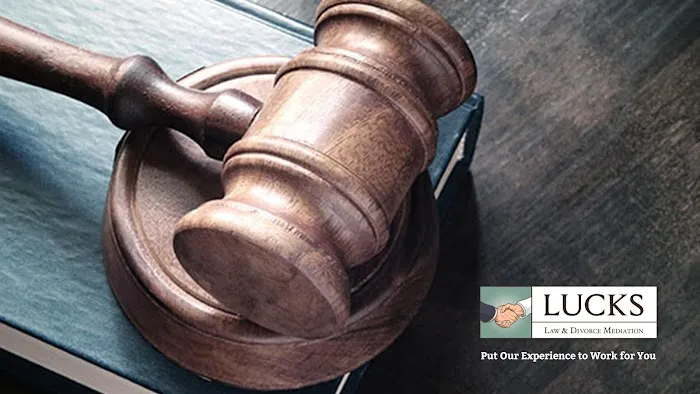
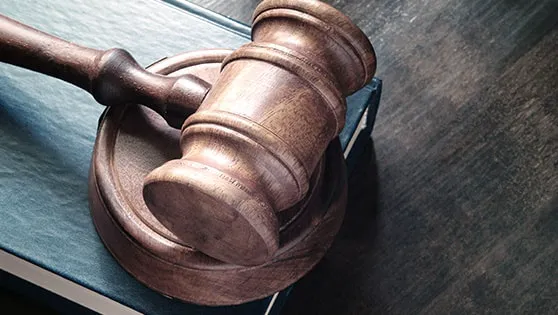
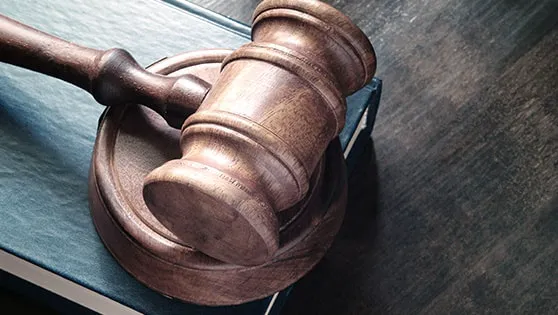







Robert Lucks Attorney at Law Location
Robert Lucks Attorney at Law
104 S Central Ave Suite 14, Valley Stream, NY 11580, USA
Robert Lucks Attorney at Law Reviews
More law offices near me
 Law offices of Dolly Z Hassan4.0 (428 reviews)
Law offices of Dolly Z Hassan4.0 (428 reviews)135-20 Liberty Ave, South Richmond Hill, NY 11419, USA
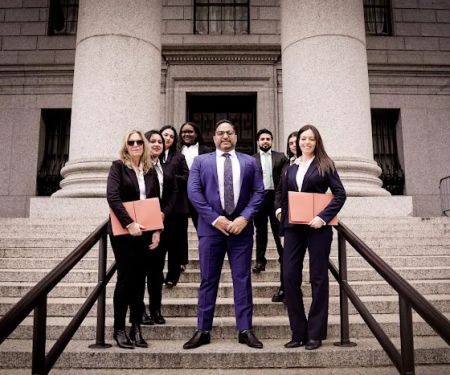 Law Office of Seni Popat, P.C.5.0 (162 reviews)
Law Office of Seni Popat, P.C.5.0 (162 reviews)134-02 Liberty Ave Suite 2BF, South Richmond Hill, NY 11419, USA
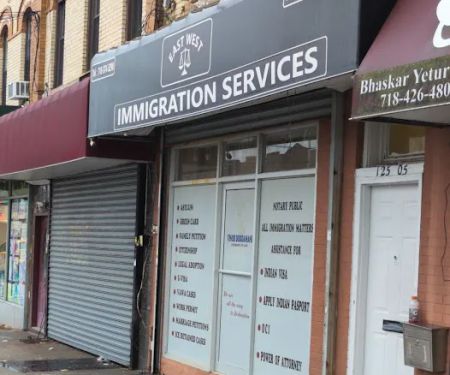 East West Services Law Office3.0 (70 reviews)
East West Services Law Office3.0 (70 reviews)125-05 101st Ave, South Richmond Hill, NY 11419, USA
 Robert Hanoman Law Office0.0 (0 reviews)
Robert Hanoman Law Office0.0 (0 reviews)120-07 Liberty Ave, South Richmond Hill, NY 11419, USA
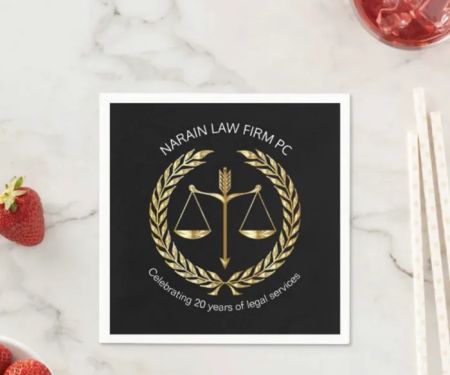 Narain Law Firm PC4.0 (5 reviews)
Narain Law Firm PC4.0 (5 reviews)110-23 Rockaway Blvd, Jamaica, NY 11420, USA
 Boris R Nektalov, Attorney At Law5.0 (185 reviews)
Boris R Nektalov, Attorney At Law5.0 (185 reviews)101-05 Lefferts Blvd Suite 208, South Richmond Hill, NY 11419, USA
 Jagan Law Firm, PLLC4.0 (299 reviews)
Jagan Law Firm, PLLC4.0 (299 reviews)115-12 Liberty Ave Suite 2A, South Richmond Hill, NY 11419, USA
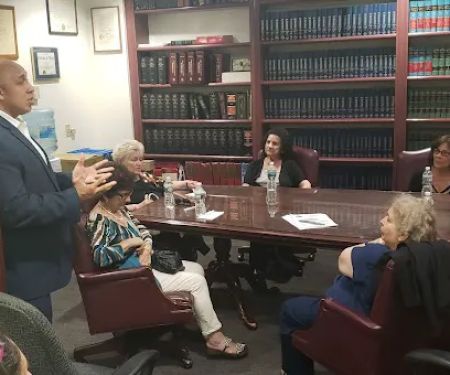 Digangi Lawfirm5.0 (6 reviews)
Digangi Lawfirm5.0 (6 reviews)101-05 Lefferts Blvd, South Richmond Hill, NY 11419, USA
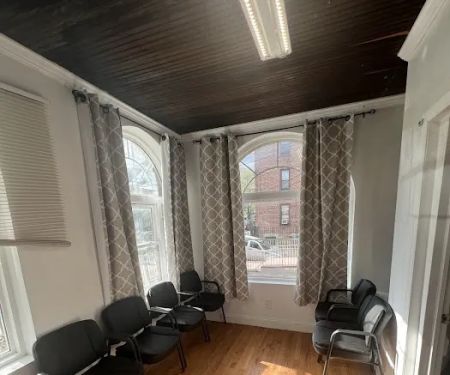 Singh Law Group, PLLC4.0 (14 reviews)
Singh Law Group, PLLC4.0 (14 reviews)97-19 Lefferts Blvd, South Richmond Hill, NY 11419, USA
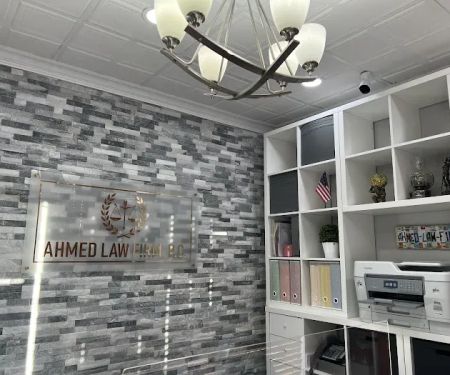 Ahmed Law Firm4.0 (70 reviews)
Ahmed Law Firm4.0 (70 reviews)104-09 113th St, South Richmond Hill, NY 11419, USA
 Chrom MD5.0 (5 reviews)
Chrom MD5.0 (5 reviews)118-03 Atlantic Ave, Richmond Hill, NY 11418, USA
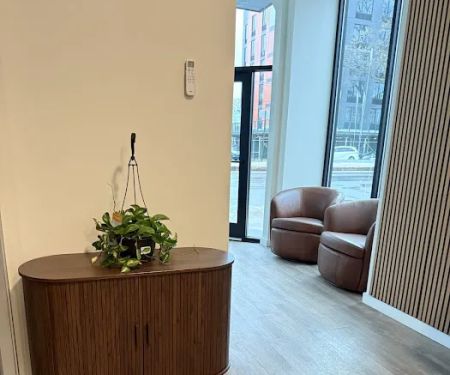 Shiryak & Habib LLP4.0 (34 reviews)
Shiryak & Habib LLP4.0 (34 reviews)115-01 Atlantic Ave, Richmond Hill, NY 11418, USA
Categories
Top Visited Sites
 Prestige Law Personal Injury & Car Accident Lawyers4.0 (66 reviews)
Prestige Law Personal Injury & Car Accident Lawyers4.0 (66 reviews) Daniel J Osojnak Law Offices5.0 (3 reviews)
Daniel J Osojnak Law Offices5.0 (3 reviews) Lenza Law Firm, PLLC4.0 (27 reviews)
Lenza Law Firm, PLLC4.0 (27 reviews) Anderson Hemmat, L.L.C.0.0 (0 reviews)
Anderson Hemmat, L.L.C.0.0 (0 reviews) Voss Law, LLC4.0 (22 reviews)
Voss Law, LLC4.0 (22 reviews) Feinstein Bankruptcy Law4.0 (28 reviews)
Feinstein Bankruptcy Law4.0 (28 reviews)Trending Law Made Simple Posts
 How to Expunge a Criminal Record – A Complete Guide
How to Expunge a Criminal Record – A Complete Guide How to Avoid Common Legal Mistakes When Buying a Home – Expert Advice
How to Avoid Common Legal Mistakes When Buying a Home – Expert Advice Law Made Simple: Understanding Child Custody Laws in Simple Terms
Law Made Simple: Understanding Child Custody Laws in Simple Terms Your Rights During a Police Stop – Essential Guide to Stay Safe and Protected
Your Rights During a Police Stop – Essential Guide to Stay Safe and Protected Your Rights During a Police Stop – Expert Legal Advice for Citizens
Your Rights During a Police Stop – Expert Legal Advice for Citizens A Beginner’s Guide to Small Claims Court
A Beginner’s Guide to Small Claims Court 
